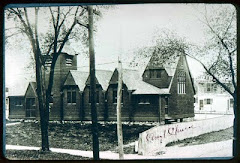I heard Dr. Drake Williams from Tyndale Theological Seminary in the Netherlands speak on Romans 3:20, "God presented him as a sacrifice of atonement, through faith in his blood. He did this to demonstrate his justice, because in His forbearance He had left the sins committed beforehand unpunished"
Dr. Williams pointed out some significant differences in translation for a phrase in verse 25…
NIV: “sacrifice of atonement” –Christ's death takes away sin.
KJV, ESV: “propitiation” –God’s wrath has been satisfied by thee sacrifice of Christ.
RSV, NAB: “expiation”/NAB God’s wrath has been covered and appeased; our condition has been rendered favorable.
NET, Tyndale: “mercy seat” Jesus is the mercy seat who intercepts God’s wrath and restores us to a relationship with God. *This is the most exact rendering of the Greek.
This Greek word is rendered "mercy seat" in Hebrews 9:5 as well. Under the Old Covenant, sins were forgiven but not absolutely/permanently taken away. Temple sacrifices had to be repeated; the Cross is the new Temple, and Christ’s blood covers our sin. The work is done.




